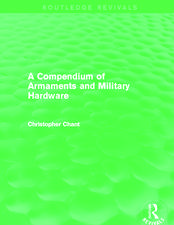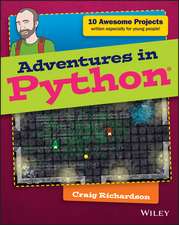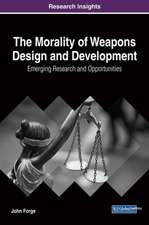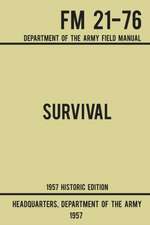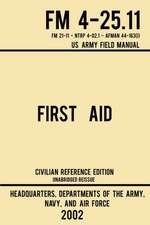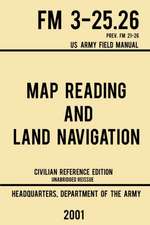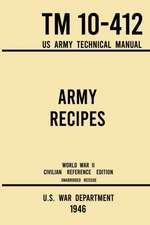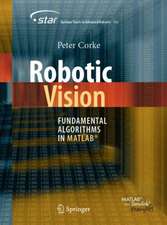Designed to Kill: The Case Against Weapons Research: Research Ethics Forum, cartea 1
Autor John Forgeen Limba Engleză Paperback – 29 ian 2015
This book has wide appeal in fields of philosophy and related areas, as well to a more general audience who are puzzled about the rate at which new weapons are accumulated.
| Toate formatele și edițiile | Preț | Express |
|---|---|---|
| Paperback (1) | 642.03 lei 6-8 săpt. | |
| SPRINGER NETHERLANDS – 29 ian 2015 | 642.03 lei 6-8 săpt. | |
| Hardback (1) | 648.42 lei 6-8 săpt. | |
| SPRINGER NETHERLANDS – 23 dec 2012 | 648.42 lei 6-8 săpt. |
Preț: 642.03 lei
Preț vechi: 755.33 lei
-15% Nou
Puncte Express: 963
Preț estimativ în valută:
122.87€ • 127.80$ • 101.43£
122.87€ • 127.80$ • 101.43£
Carte tipărită la comandă
Livrare economică 15-29 aprilie
Preluare comenzi: 021 569.72.76
Specificații
ISBN-13: 9789400795242
ISBN-10: 9400795246
Pagini: 328
Ilustrații: XIV, 314 p.
Dimensiuni: 155 x 235 x 17 mm
Greutate: 0.46 kg
Ediția:2013
Editura: SPRINGER NETHERLANDS
Colecția Springer
Seria Research Ethics Forum
Locul publicării:Dordrecht, Netherlands
ISBN-10: 9400795246
Pagini: 328
Ilustrații: XIV, 314 p.
Dimensiuni: 155 x 235 x 17 mm
Greutate: 0.46 kg
Ediția:2013
Editura: SPRINGER NETHERLANDS
Colecția Springer
Seria Research Ethics Forum
Locul publicării:Dordrecht, Netherlands
Public țintă
ResearchCuprins
Chapter 1; Weapons, Weapons Research and the Case Against Weapons Research.- Chapter 2; The Development of Projectile Weapons: Ancient Catapults.- Chapter 3; The Development of Projectile Weapons 2: Firearms.- Chapter 4; The Development of Nuclear Weapons.- Chapter 5; The Moral Dimension of Weapons Research.- Chapter 6; How to Make The Case Against Weapons Research.- Chapter 7; Defensive, Deterrent and ‘Humane’ Weapons.- Chapter 8; Weapons Research, Contexts and Justifications, and the Analogy with Explanation.- Chapter 9; Just War Theory and Wartime Weapons Research.- Chapter 10; War and Realism.- Chapter 11; Commercial Weapons Research and Peacetime Weapons Research.- Chapter 12; Wartime Weapons Research and Supreme Emergency in World War Two.- Chapter 13; Conclusion and Review of the Major Claims and Assumptions.
Notă biografică
John Forge taught in the departments of History and Philosophy of Science at the Universities of New South Wales and Wollongong, and in the School of Science (Science, Technology of Science Group) in Australia from 1975 to 2005. He has been the recipient of the Inaugural Prize for Excellence in Teaching at Griffith University, the David Harold Prize in Philosophy, and won the Eureka Prize in Research Ethics in 2010.
Textul de pe ultima copertă
The pilot-less drones, smart bombs and other high-tech weapons on display in recent conflicts are all the outcome of weapons research. However, the kind of scientific and technological endeavour has been around for a long time, producing not only the armaments of Nazi Germany and the atomic bombs dropped on Japan, but the catapults used in ancient Greece and Rome and the assault rifles used by child soldiers in Africa. In this book John Forge examines such weapons research and asks whether it is morally acceptable to undertake such an activity. He argues that it is in fact morally wrong to take part in weapons research as its primary purpose is to produce the means to harm others, and moreover he argues that all attempts to then justify participation in weapons research do not stand up to scrutiny.
This book has wide appeal in fields of philosophy and related areas, as well to a more general audience who are puzzled about the rate at which new weapons are accumulated.
This book has wide appeal in fields of philosophy and related areas, as well to a more general audience who are puzzled about the rate at which new weapons are accumulated.
Caracteristici
Discusses the neglected topic of weapons research in the literature of applied ethics/applied moral philosophy Argues that weapons research is morally wrong and morally unjustifable Provides a wide ranging use of examples, from ancient weapons to those of the present day?












